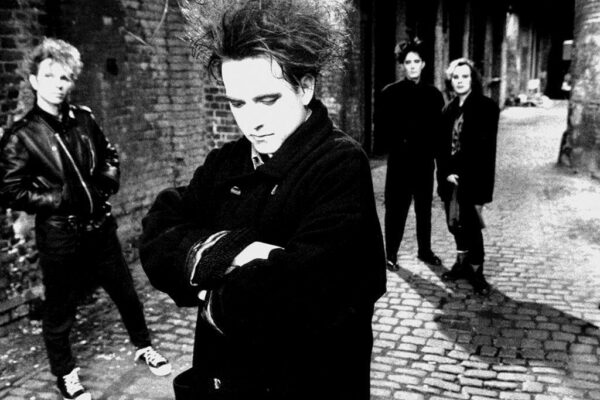Sometime back, music that was popular and trending on the music charts was given the term ‘pop music’. Later the opposite of mainstream music emerged, which was described as ‘alternative rock. Today, many individuals describe newer forms of modern rock with the term ‘alternative music’.
It is usually seen as a broad category of music, which includes a variety of sub-genres. They include alternative rock and indie rock. You’ll notice that the beauty of alternative music lies beyond how good it sounds. It is not about how much skill is needed to create it. It is about the message it conveys. For many free thinkers and radicals, alternative music is an underground sanctuary.
Since alternative music is being discussed here, there can be a bunch of different definitions for it. Let’s take a look at some of the ways of defining this genre of music:
1. An artist’s product that’s different from the popular standards.
The phrase ‘non-mainstream and ‘alternative music’ are used almost interchangeably by many listeners of this type of music. As a result, any musical style or musician contradicting mainstream music is associated with the alternative music scene. This often creates a lot of dilemmas for the artists who belong to the ‘alternative music’ genre.
When an artist gets associated with the alternative music scene, he or she could be misunderstood by many. Owing to the stereotype that’s often attached to this kind of music, the artist may not even get labelled. You could see yourself as an alternative artist, but your music might be different from the popular ones.
In the end, you could end up being grouped with every other artist under alternative music’s inaccurate category. This can make you feel that your specific style is not being recognized. This isn’t something that’s new happening. Most of the artists who make underground music don’t get the recognition they deserve. Neither do mainstream media give them coverage nor do they get recognized by the critics.
Getting overlooked in this manner makes the artists or bands of alternative music feel ‘opposite to mainstream’. In a way, it also fulfils the goal of alternative music. It brings together all the artists and bands who believe in breaking the rules. They’re the ones who don’t want to be confined to certain boundaries. Besides, they don’t mind getting the ‘alternative’ tag. All they care about is getting their message across.
2. A musical movement that encourages creativity rather than controlling it.
One of the most wonderful aspects of alternative music is that it doesn’t have to conform to any standards. It simply needs to be creative and not an experimental or non-orthodox type. For this reason, many artists feel a sense of belonging to the alternative music scene. They include solo musicians or bands of alternative rock, alternative hip-hop, and indie-pop.
Under alternative music, the music being made just needs to be creative. This is the main criteria of music that’s considered as an alternative. So, if an artist is not particularly revolutionary, he or she can still belong to the alternative music category. The only thing is that they need to do something unique.
It certainly takes some amount of courage to stand out and produce a different sound. This would be enough for an artist or band to be a part of alternative music. One of the best examples here would be Lorde. Her sound was unique and provided something refreshingly new to pop music.
This is the same for any other artist who is brave enough to give something different to the audience. If you give this some thought, you’ll see the truth. There’s one factor that’s common between all the best-selling alternative artists. They didn’t surrender to the conventional and were all creative.
3. A collection of music genres and musical styles.
Whenever there’s a mention of alternative music, many people think it’s a single music genre. This is not true, because alternative music covers a variety of genres and sub-genres. Individuals who have more experience with different kinds of music would certainly understand this fact.
Let’s take alternative rock as an example. Now, alternative rock can be placed under the category of alternative music. So can be the case with alternative folk, alternative country, electronic music, and punk rock. Alternative music can also be used while referring to artists of different musical styles.
This is because it is not tied only to one particular style. So, an indie artist, experimental artist, and progressive artist can be put under the alternative category. The same is also true with pop, rock, jazz, or hip-hop artist.
You can be an artist in the alternative category no matter what musical style you choose. The only condition is that you must be doing your own thing.
4. The opposite of mainstream
Alternative music is the opposite of mainstream music in the most basic sense. It’s not about what kind of music you would routinely hear on the radio. It’s also not about the music that’s played in the cafes and restaurants typically. What would really be apparent to anyone is the fact that alternative music is different from the majority.
Now, this doesn’t mean that alternative music is better or worse in any way. An alternative artist may not fit into all categories and genres of alternative music. So, if you’re a punk rock artist, you’ll not be considered also an indie rock or alternative country artist.
5. The sound of the outsiders
Many individuals view alternative music as the genre of outsiders. The artists creating alternative music and the listeners of this musical genre are also viewed in the same manner. Although this bias is not seen everywhere, it does exist.
The alternative artists and listeners are not outsiders, but individuals who are different. These artists in this genre have something to say and there are listeners who can relate to their message. It’s quite true that the alternative artists are not run-of-the-mill mainstream musicians.
Such individuals are never afraid to express themselves. They continue to say what they want to say, whether it isn’t what the audience usually like listening to. They get started as outsiders and play their game by rules that they’ve set for themselves.





